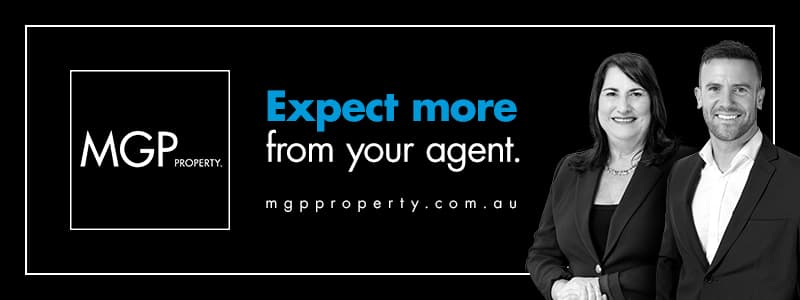

I believe that these days, most agents are far more professional and operate with greater integrity than what might have been typical in years before. That being said, I think there’s still room for improvement and there are still important considerations that homeowners should be aware of when looking to choose an agent to work with. So, to help those homeowners that might be looking to sell their property, here are five tips to help you secure the right agent for your property.
1. Make sure the information in your appraisal is accurate
When the agent first sits down with you, get them to give you a thorough walk-through of their appraisal. An appraisal must have comparable sales evidence in it, and this is really the focus area of any appraisal. If there’s no evidence shown in their appraisal, I would be asking the agent to go away and provide some. It’s only fair that the agent provides some sales evidence to justify the price they believe your property will sell for. I would also check to see if there is any commentary written on each piece of comparable sales evidence. If not, I think it is very fair to at least ask the agent to talk you through each comparable sale so you can get some comfort around it. Seeing it in writing would be my preference though. If the agent can’t provide the information, you are well in your rights to ask them to provide you with the comparisons on sales before discussions continue.
Now, when looking at the sales evidence, does it look right to you? Is the evidence recent? Does the agent’s explanation of it sound accurate? If you’re unsure, maybe you could check if the REIWA website has any recent sales that are comparable. The REIWA website doesn’t always show all the recent sales evidence but there might be something that is helpful, or try and seek advice from someone you know who has experience in the area if you still aren’t sure. Important to remember when comparing sale – it really needs to be on an apples for apples basis. It gets much harder to make accurate comparisons if you try to compare properties that have too many differences. Another important note is to make sure that the evidence is of recent sales. Old evidence can be of limited value if there has been significant change in market prices.
Unfortunately, it’s been known that some homeowners have been underquoted by agents to land an easy sale, which some may view as merely under-promising or managing expectations so they can over-deliver. Or on the flip side, agents may have suggested an above-market price to satisfy what a seller wants to hear, just to get a new client on board. It can happen in all markets, whether its growing or declining. Either way, you want to know that the agent is being honest in their estimations and not playing a tactical game to make personal gains. Doing your due diligence on their appraisal and not being afraid to ask questions will be very helpful in getting the comfort you need to make sure what you are being told is accurate.
2. Watch out for false promises
“We already have someone who wants to buy your home – list with us.”
If you hear this, take it with a grain of salt. An agent might tell you that they can easily sell your home to one of the buyers from a similar listing they just had up the road for a ‘great price’ without a home open.
Firstly, there’s a good chance that the ‘great price’ mentioned is nowhere near as great as the price you could get if you listed your home for sale on an open market, especially in a booming market like that one we are in now.
Secondly, not many people want to buy a house without seeing it first. So even if there really was an interested buyer, there’s no real way of knowing if they are going to want to buy your house without seeing it first.
Lastly, if they did have genuine interest from a buyer, then you shouldn’t need to advertise your home on the market at all, which in a scenario like this, is often what happens in the end.
In order to test the validity of an agent’s statements, there are a few steps you could try:
- Try and ask the agent for an offer, subject to the buyer viewing the property.
- Let them have the sign up, but keep it to only a few weeks – just enough time for them to get these interested buyers through and figure out if they are real or not.
- Make sure you include in the agreement that there is no marketing spend.
- Request a special condition in the listing agreement which restricts them from advertising the property openly, even if they did it at their own cost.
In the current market, it is much easier to secure sales off market, so there’s nothing wrong with giving an agent an opportunity to do so. But it is helpful to be aware of some of the pitfalls and protect yourself from the beginning. Putting your terms and conditions in writing will keep the agent accountable for every action and put you in control.
3. Negotiating on the agent’s commission
Everyone wants a fair price, and some sellers might want to ask their agent if they’ll reduce their commission if they fail to sell their house for the appraised price. I’m sure many agents won’t like this question, but I think it’s very fair to ask and particularly in today’s market when a sale takes half the time to complete.
There are some pros and cons to this suggestion though. It could encourage the agent to suggest that your house is worth less, but it could also play a role in preventing your agent from giving you an estimate above the market price. It would certainly help encourage the agent to work harder on the sale to avoid slipping into a lower percentage fee.
It also becomes difficult the more unique the property is, or in cases where there is limited sales evidence, as it gets harder to accurately estimate price. In circumstances like this it might not always be fair to the agent. However, if the agent is confident in their knowledge of the local market, they should be comfortable with an arrangement like this and they should be able to secure a result within the appraised price range, all things being equal.
Try having an open conversation with your agent and negotiating on this term with caution. To sweeten the deal for the agent, you could offer them a higher percentage fee if they exceed the price expectations. Now, that would be very fair in my opinion – it should really go both ways.
4. Make sure your interests are first and foremost during home opens
I’ve seen firsthand agents that try to sell their other properties to buyers while at a home open. I know this isn’t happening everywhere, but it was really disappointing to see it even once. My view is that the agent’s priority is to only push the particular home they are showing at that time, and only when no doubt remains that the buyer is not interested, should their other listed properties be suggested. For example, if the buyer’s response to the property is “I’m not sure”, or “I like the location, but the wall colours aren’t really for me”, or anything not of a definitive nature, it’s not yet time to steer them onto a different property. Until it’s a flat “no”, the agent should keep pushing the property at hand.
I think the best way to deal with this is to just ask the agent how they manage buyers’ questions when enquiring about your properties or during the home open, and other possible properties the agent might have which could suit the buyer. This should hopefully be enough to reassure you of their intentions. I don’t think anything too creative is needed, but it is certainly something to tick off in my book.
5. What marketing is good for my property and what can I do without?
Often, property marketing can appear to market the agency as much as the property. It’s great exposure for the agency but a good marketing plan is critical in order to get the best result for your sale. Understandably, some of it can be frustrating for sellers but a few simple questions can help you avoid any wasted marketing spend. Ask the agent to run through some data or results from the previous use of that piece of marketing. Ask them how that marketing helped the sale. Do they have any tangible results to reflect on? If the piece of marketing has helped before, then how do they know it’s going to help sell your property? As experts in marketing and selling real estate, agents should have some level of knowledge here. If the agent cannot confidently answer, then you’ve every right to question whether it is needed or not.
In my view, you can’t go without the basics. Signage, good photos, your online advertising and brochures for the home opens are a must, and a set of plans to give out is very helpful. Videos can be great, but I would usually keep these to the more unique homes. Staging does work wonders, but I know this can be difficult to implement in practice, especially when you live at the home with the kids still. There are a few other marketing items that I know to be very effective, but I can’t give away all my secrets!
Being properly informed through every step of the process will ensure that you remain comfortable putting your property in the hands of an agent. Right from the start, don’t be afraid to ask a lot of questions. Your questions are always valid, and they are better asked at the very beginning. Getting answers is going to help you get the comfort you need with your particular agent.
If you want to have chat with James about your real estate matters, he is happy to help. He is best contactable via email at james@mgpproperty.com.au or on 0447 120 125.
Thinking of selling your home? Make sure to check out James’ blog post on Selling Your Home in a Surging Property Market.
